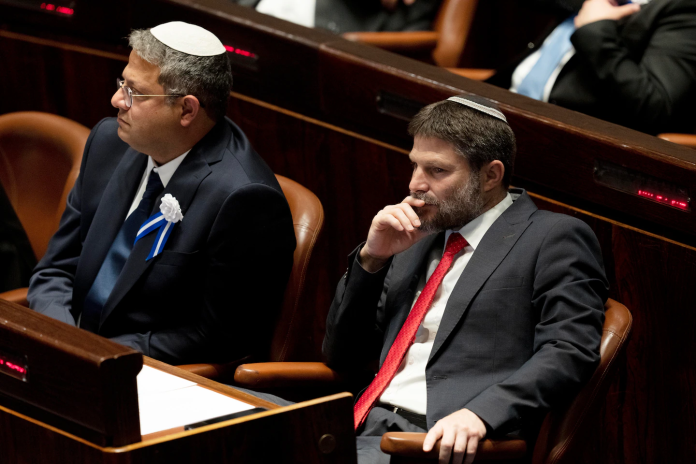The Dutch government will formally prohibit two prominent Israeli national-oriented ministers from entering the Netherlands, signalling a hardening European stance against Israel’s Gaza policies, according to AP News.
Foreign Minister Caspar Veldkamp confirmed the entry ban targeting National Security Minister Itamar Ben-Gvir and Finance Minister Bezalel Smotrich in a late Monday parliamentary communiqué declaring that “the war in Gaza must stop.”
The move aligns with last month’s financial sanctions imposed by the UK, Australia, Canada, New Zealand and Norway against the same ministers, who are pivotal allies in Prime Minister Benjamin Netanyahu’s governing coalition.
Both politicians are renowned for championing Israeli settlement expansion in seized territories and have openly advocated continuing military operations in Gaza while promoting what they term the “voluntary emigration” of Palestinians and subsequent Jewish settlement establishment in the coastal enclave.
Ben-Gvir and Smotrich responded defiantly to the Dutch decision. Smotrich denounced European leaders via social media for capitulating to “the lies of radical Islam,” darkly suggesting Jews may soon find Europe unsafe. Ben-Gvir asserted he would “continue to act,” contrasting his exclusion with what he characterised as Europe’s tolerance for terrorists and systemic discrimination against Jews.
Humanitarian imperatives drive policy shift
Domestic pressure intensified on the Dutch administration ahead of October’s general elections, culminating in nationwide demonstrations where thousands brandished pots and pans at train stations symbolising Gaza’s starvation crisis.
Foreign Minister Veldkamp’s letter outlined additional diplomatic measures, including summoning Israel’s ambassador to demand Netanyahu “immediately take measures that lead to a substantial and rapid improvement in the humanitarian situation throughout the Gaza Strip.”
The sanctions emerge despite Israel’s recent announcement of limited humanitarian pauses and aid airdrops following global pressure. United Nations agencies and Gaza residents report negligible on-ground improvements, describing the measures as a temporary “one-week scale-up” without clarity on duration.
The humanitarian context is further complicated by the International Criminal Court’s arrest warrants against Netanyahu and former Defence Minister Yoav Gallant, who face allegations of employing “starvation as a method of warfare” and intentionally targeting civilians. All ICC member states, including the Netherlands, bear legal obligations to arrest the indicted officials if they enter their jurisdictions.
Veldkamp’s parliamentary correspondence explicitly references curtailing “non-essential contacts” with Netanyahu and Gallant, positioning the entry ban within a broader framework of legal accountability.
